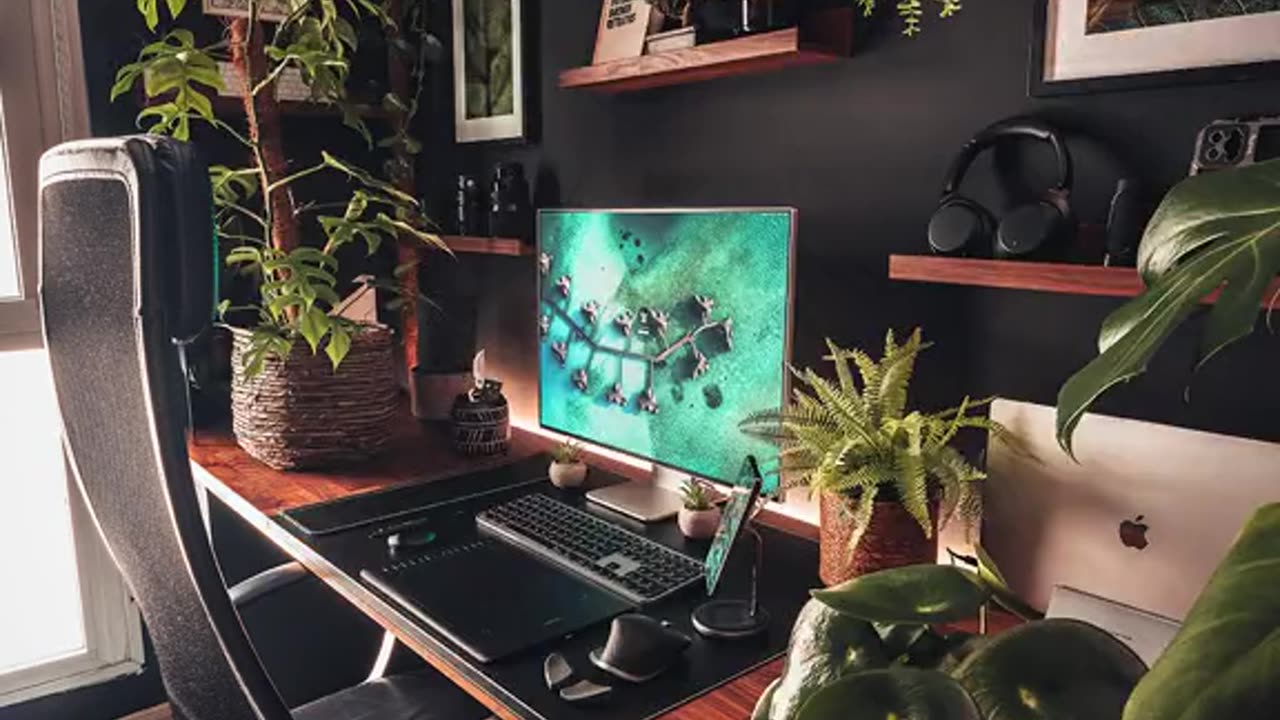Premium Only Content

Unlocking Productivity: The Psychological Benefits of an Organized Workstation
Unlocking Productivity: The Psychological Benefits of an Organized Workstation
The Connection Between Environment and Psychology
• Discuss the principle of environmental psychology and how physical spaces impact emotions and behaviors.
• Introduce research supporting the idea that clutter can increase stress and affect focus.
The Psychological Benefits of an Organized Workstation
1. Reduced Stress and Anxiety
• Explain how a clutter-free environment can lead to lower levels of cortisol, the stress hormone.
• Cite studies or expert opinions linking a clean workspace with a calmer mind.
2. Enhanced Focus and Concentration
• Detail how removing distractions from the workstation can minimize cognitive overload, which improves concentration.
• Reference psychological theories, such as the cognitive load theory, to support these claims.
3. Increased Productivity
• Discuss how an organized desk can streamline workflows and reduce time spent searching for items, thus speeding up work processes.
• Include statistics or case studies that demonstrate improvements in productivity linked to organization.
4. Boosted Creativity
• Explore the idea that a tidy workstation can foster a more creative thinking process by removing mental barriers caused by disorder.
• Share anecdotes or quotes from creative professionals about how a neat environment aids their creative process.
5. Improved Mental Health
• Touch on the long-term benefits of maintaining an organized space, such as improved mood and lower risk of mental fatigue.
• Consider incorporating advice from mental health professionals.
Practical Tips for Organizing Your Workstation
• Provide actionable advice on how to organize a desk effectively:
• Suggest ergonomic arrangements of computer and chair.
• Recommend tools and accessories that aid organization, like drawer organizers, cable management systems, and desktop organizers.
• Offer tips on digital organization, such as managing virtual desktops and utilizing productivity apps.
-
 0:45
0:45
WFH University
15 days agoShould You Forget Palantir and Buy (AI) Stocks
181 -
 LIVE
LIVE
I_Came_With_Fire_Podcast
9 hours agoObama's Treason, Trade War: Season Infinity, and Hunter's Pipe Dream
84 watching -
 LIVE
LIVE
TimcastIRL
2 hours agoObama Referred To DOJ For TREASON, Criminal Investigation, CIVIL WAR!! | Timcast IRL
8,411 watching -
 DVR
DVR
RalliedLIVE
9 hours ago $2.44 earned10 WINS WITH THE SHOTTY BOYS
73.7K3 -
 DVR
DVR
Badlands Media
13 hours agoAltered State S3 Ep. 38
27.1K7 -
 LIVE
LIVE
SpartakusLIVE
1 hour agoLAST Stream Until NEXT WEEK || Going to Florida to hang out w/ a SPECIAL Gaming Buddy
272 watching -
 10:19
10:19
MattMorseTV
1 day ago $8.99 earnedTrump just went SCORCHED EARTH.
58.9K57 -
 1:36:49
1:36:49
RiftTV
4 hours agoHow Much is the Government SPYING on You and STEALING Your DATA?! | Almost Serious | Guest: Matt Kim
13.5K3 -
 1:31:26
1:31:26
Glenn Greenwald
5 hours agoAaron Maté on More Russiagate Fallout, Protests in Ukraine, and Israel's Strikes on Syria With Special Guests John Solomon, Marta Havryshko, and Joshua Landis | SYSTEM UPDATE #491
108K28 -
 1:55:43
1:55:43
Melonie Mac
4 hours agoGo Boom Live Ep 56!
28.8K5